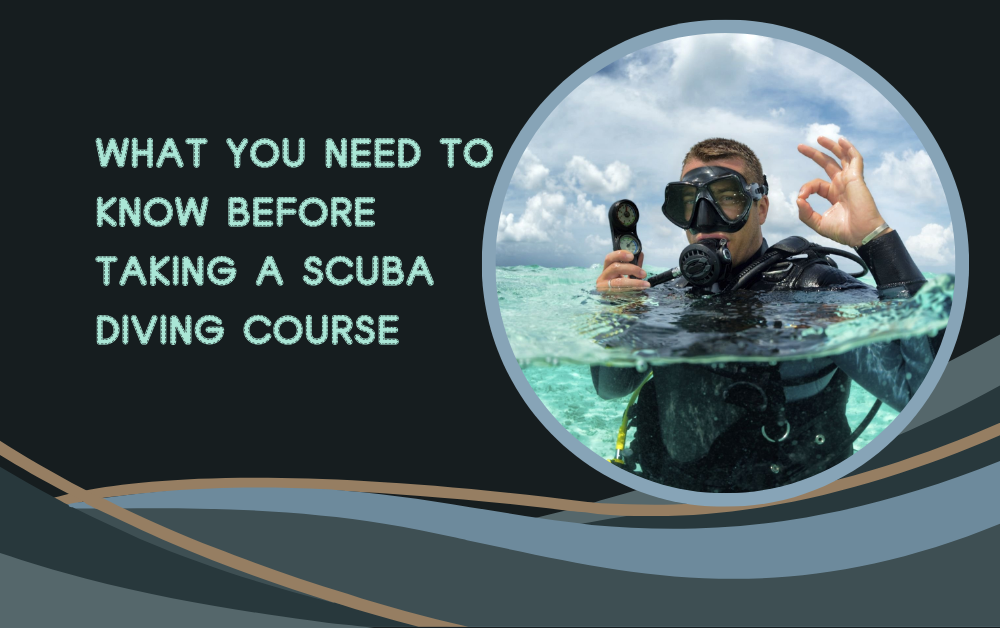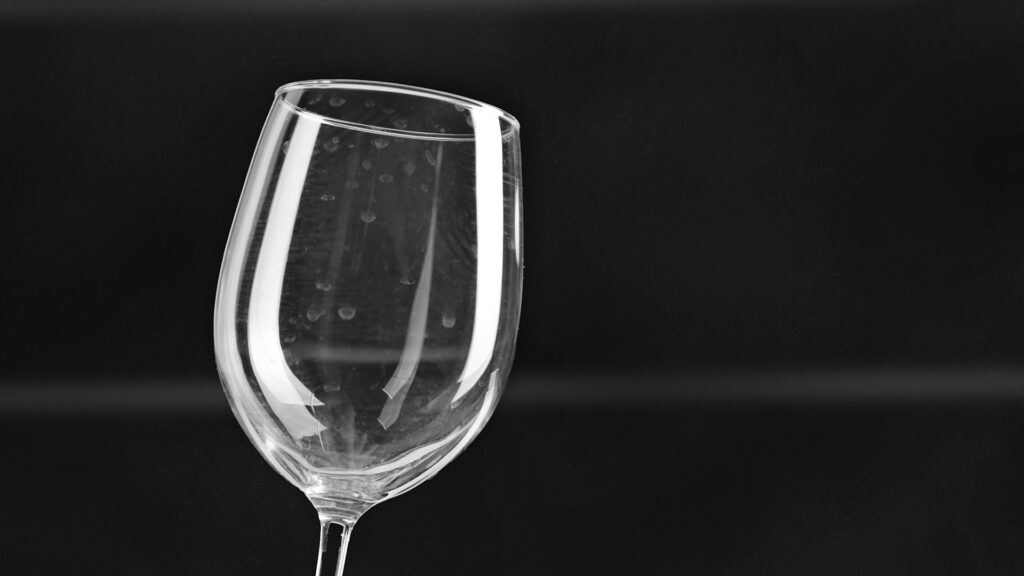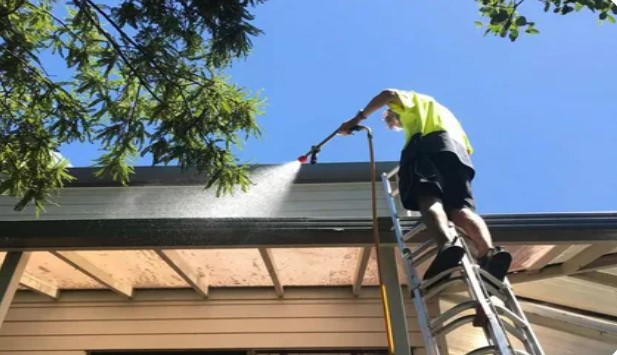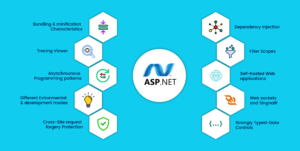Scuba diving is an exciting adventure that allows you to explore the underwater world in a way that few other activities can. If you’ve ever dreamed of swimming with colorful fish, gliding over coral reefs, or experiencing the tranquility of the ocean, then scuba diving might be perfect for you. But before you dive in, there are some important things you should know. In this guide, we’ll walk you through everything you need to know before taking a scuba diving course.

Understanding Scuba Diving: What Is It All About?
What Exactly Is Scuba Diving?
Scuba diving stands for Self-Contained Underwater Breathing Apparatus diving. This means that divers carry their own source of air, which allows them to breathe underwater. Unlike snorkeling, where you stay on the surface, scuba diving allows you to go deeper into the ocean or other bodies of water to explore underwater landscapes and marine life up close.
Why Do People Love Scuba Diving?
Scuba diving offers a unique experience that is both thrilling and peaceful. Divers often talk about the feeling of weightlessness as they move through the water, the beauty of underwater ecosystems, and the sense of adventure that comes with exploring places that are otherwise unreachable. Whether you’re interested in seeing shipwrecks, swimming with sharks, or simply enjoying the colorful life of a coral reef, scuba diving opens up a whole new world.
The Importance of Scuba Diving Training
Why Do You Need Training?
Scuba diving might look simple, but it requires specific skills and knowledge to do it safely. Without proper training, you could put yourself at risk for serious injury. Training teaches you how to use the equipment, how to manage your air supply, how to communicate with your diving buddy, and how to handle potential emergencies.
What Will You Learn in a Scuba Diving Course?
A scuba diving course will cover the basics of diving, including:
- Understanding Equipment: You’ll learn about the different parts of your scuba gear, how they work, and how to maintain them.
- Breathing Techniques: You’ll practice breathing underwater with a regulator, which is different from normal breathing.
- Buoyancy Control: You’ll learn how to control your movement underwater, so you can stay at the right depth without floating up or sinking down.
- Safety Procedures: You’ll be taught what to do in case of an emergency, such as running out of air or getting separated from your diving buddy.
- Marine Life Awareness: Understanding how to interact with marine life safely and respectfully is also part of the training.
NOTE:- If you’re eager to experience the beauty of the underwater world, consider starting your scuba diving in Fujairah! With its stunning marine life and crystal-clear waters, Fujairah offers some of the best scuba diving opportunities. Book your scuba diving course today and explore the vibrant reefs and diverse marine life of Fujairah. Whether you’re a beginner or an experienced diver, Fujairah’s diving spots promise an unforgettable experience.
Choosing the Right Scuba Diving Course
Types of Scuba Diving Courses
There are various scuba diving courses available, depending on your level of experience and your goals:
- Beginner Courses: If you’ve never dived before, you’ll start with an entry-level course like the Open Water Diver course. This course will teach you the fundamentals and certify you to dive up to a certain depth.
- Advanced Courses: Once you’ve completed the beginner course, you can take advanced courses that allow you to explore deeper waters, night diving, wreck diving, and more.
- Specialty Courses: If you’re interested in a specific type of diving, such as underwater photography or cave diving, there are specialty courses available.
How to Pick the Best Course for You
When choosing a scuba diving course, consider the following factors:
- Certification Agency: Make sure the course is certified by a reputable agency like PADI (Professional Association of Diving Instructors) or SSI (Scuba Schools International). These agencies set high standards for safety and education.
- Instructor Qualifications: Check the experience and credentials of the instructor. A good instructor can make a big difference in your learning experience.
- Class Size: Smaller class sizes often provide more personalized instruction, which can be beneficial for beginners.
- Location: Choose a location that interests you. Some people prefer to learn in warm, tropical waters, while others might be interested in colder or more challenging environments.
Preparing for Your Scuba Diving Course
Physical Fitness and Health Considerations
Before you start scuba diving, it’s important to be in good health. Here are some things to consider:
- Medical Clearance: Some diving centers require a medical clearance from a doctor before you can start the course. This is to ensure that you don’t have any health conditions that could be dangerous while diving, such as asthma or heart problems.
- Physical Fitness: You don’t have to be an athlete, but being physically fit will make diving easier and more enjoyable. Activities like swimming and walking can help improve your stamina and strength.
- Mental Readiness: Diving can be mentally challenging, especially if you’re not comfortable in the water. Being calm and confident is important, so it might be helpful to practice relaxation techniques.
What to Bring to Your Scuba Diving Course
When preparing for your scuba diving course, it’s essential to have the right gear and equipment. Here’s a list of what you might need:
- Swimsuit: A comfortable swimsuit is a must, as you’ll be spending a lot of time in the water.
- Towel: You’ll need a towel to dry off after your training sessions.
- Water Bottle: Staying hydrated is important, especially when you’re spending time in the sun.
- Sunscreen: Protect your skin from the sun with a good quality sunscreen. Make sure it’s reef-safe to avoid harming marine life.
- Logbook: Some courses provide a logbook, but if not, you might want to bring one. This is where you’ll record your dives and track your progress.
- Certification Card: If you’re taking an advanced course, don’t forget to bring your certification card from your previous course.
Understanding the Costs Involved
Scuba diving courses can vary in price depending on the location, the type of course, and the equipment needed. Here’s what you might expect to pay for:
- Course Fee: This covers the cost of instruction, pool sessions, and open water dives. It might also include study materials and certification fees.
- Equipment Rental: Some courses include equipment rental, but in other cases, you might need to rent or buy your own gear. Basic equipment includes a mask, fins, snorkel, wetsuit, and dive computer.
- Travel and Accommodation: If you’re taking the course in a different location, don’t forget to budget for travel and accommodation.
- Insurance: Diving insurance is recommended to cover any potential medical emergencies that might occur during your course.
What to Expect During Your Scuba Diving Course
Classroom Learning
Before you get into the water, you’ll start with some classroom learning. This part of the course will cover the theory behind scuba diving, including:
- Basic Physics: You’ll learn how pressure affects your body and your equipment as you dive deeper.
- Physiology: Understanding how your body reacts to being underwater is important for staying safe.
- Diving Safety: You’ll go over safety procedures, including how to handle common problems like ear pressure or running out of air.
- Environmental Awareness: Learning about the marine environment and how to protect it is also part of your training.
Pool Training
Once you’ve completed the classroom sessions, you’ll move on to pool training. This is where you’ll start putting what you’ve learned into practice. In a controlled environment, you’ll practice:
- Breathing Underwater: You’ll get used to breathing through a regulator, which is different from normal breathing.
- Equipment Handling: You’ll learn how to put on your gear, check your equipment, and adjust it as needed.
- Basic Skills: Skills like clearing your mask, recovering your regulator, and maintaining buoyancy will be practiced repeatedly until you feel confident.
Open Water Dives
The final stage of your training is the open water dives. These take place in a natural body of water, such as a lake, ocean, or sea. During these dives, you’ll:
- Apply What You’ve Learned: You’ll practice all the skills you’ve learned in the pool, but in a real-world environment.
- Explore Underwater: This is your chance to explore the underwater world. Depending on the location, you might see coral reefs, fish, and other marine life.
- Earn Your Certification: If you successfully complete the open water dives, you’ll earn your scuba diving certification. This allows you to dive anywhere in the world, within the limits of your training.
Common Challenges and How to Overcome Them
Dealing with Anxiety
It’s normal to feel a little anxious before your first dive, especially if you’re not used to being underwater. Here are some tips for managing anxiety:
- Take It Slow: Don’t rush through the course. Take your time to get comfortable with each skill before moving on.
- Practice Breathing: Focus on slow, deep breaths to help calm your nerves.
- Trust Your Instructor: Remember that your instructor is there to guide you and keep you safe. Don’t hesitate to ask questions or express concerns.
Equalizing Pressure
As you dive deeper, you’ll feel pressure in your ears. This is normal, but it can be uncomfortable if you don’t know how to equalize it. Here’s how to do it:
- Pinch Your Nose and Swallow: This helps to equalize the pressure in your ears.
- Blow Gently: If swallowing doesn’t work, try blowing gently through your pinched nose.
- Ascend Slowly: If you can’t equalize the pressure, ascend a little until the discomfort eases, then try again.
Mask Clearing
Water might get into your mask during a dive. This can be unsettling, but it’s a common problem that you can easily manage:
- Tilt Your Head Back: Look up slightly and hold the top of your mask against your forehead.
- Blow Out Through Your Nose: This pushes the water out of the mask while keeping your mouth closed around the regulator.
Finding the Right Scuba Diving School
Choosing the right scuba diving school is crucial for a successful learning experience. Here are some tips to help you find a good school:
- Read Reviews: Look for reviews from previous students to gauge the quality of the school and instructors.
- Visit the School: If possible, visit the school in person to check the facilities and meet the instructors.
- Ask Questions: Don’t hesitate to ask about the course structure, safety procedures, and the experience of the instructors.
Networking with Other Divers
Joining a diving community can enhance your scuba diving experience. Here’s how you can connect with other divers:
- Join Online Forums: There are many online communities and forums where divers share their experiences and tips.
- Attend Dive Clubs and Events: Local dive clubs often organize events, social gatherings, and group dives.
- Participate in Dive Trips: Many diving schools and organizations offer group dive trips. These are great opportunities to meet other divers and explore new locations.
Staying Safe While Diving
Safety is paramount in scuba diving. Here are some additional safety tips to keep in mind:
- Dive with a Buddy: Always dive with a buddy. It’s safer and helps in case of emergencies.
- Follow the Dive Plan: Stick to the dive plan, including depth and time limits. Deviating from the plan can lead to dangerous situations.
- Monitor Your Air Supply: Keep a close watch on your air supply and communicate with your buddy about remaining air.
Understanding Dive Tables and Computers
Dive tables and computers help you track your dive time and depth to avoid decompression sickness. Here’s what you need to know:
- Dive Tables: These charts help you plan your dives based on depth and time to ensure you stay within safe limits.
- Dive Computers: Modern dive computers provide real-time information about your depth, time, and remaining no-decompression limits. They can be more convenient and accurate than tables.
After Your Scuba Diving Course
Earning Your Certification
Upon successful completion of your course, you will receive a certification card from your diving agency. This card allows you to rent diving equipment and book dives worldwide. Keep it safe and make copies in case you lose it.
Planning Your Next Dive
Now that you’re certified, you can start planning your future dives. Here are some tips for planning your next dive trip:
- Choose a Destination: Research diving destinations that interest you, considering factors like marine life, dive sites, and weather conditions.
- Check Equipment: Make sure your diving equipment is well-maintained and ready for your next adventure.
- Book in Advance: Popular dive sites and destinations can book up quickly, so it’s a good idea to make reservations well in advance.
Continuing Your Education
As you gain experience, you might want to pursue additional certifications and specialties:
- Advanced Certifications: Courses like Advanced Open Water Diver or Rescue Diver allow you to explore more complex diving scenarios and gain new skills.
- Specialty Courses: Consider courses like underwater photography, deep diving, or cave diving to expand your diving knowledge and skills.
Joining a Dive Community
Being part of a dive community can enhance your diving experiences. Here’s how you can get involved:
- Participate in Dive Groups: Many areas have local dive groups or clubs that organize regular dives and events.
- Engage on Social Media: Follow diving pages and join groups on platforms like Facebook or Instagram to connect with fellow divers and stay updated on diving news.
Conclusion
Embarking on a scuba diving course is the first step towards exploring the fascinating underwater world. By understanding the essentials, preparing properly, and continuing to learn, you can ensure a rewarding and enjoyable diving experience. From selecting the right course to maintaining safety and joining a dive community, each aspect plays a crucial role in your diving journey.
For more insightful articles related to this topic, feel free to visit relxnn.com









